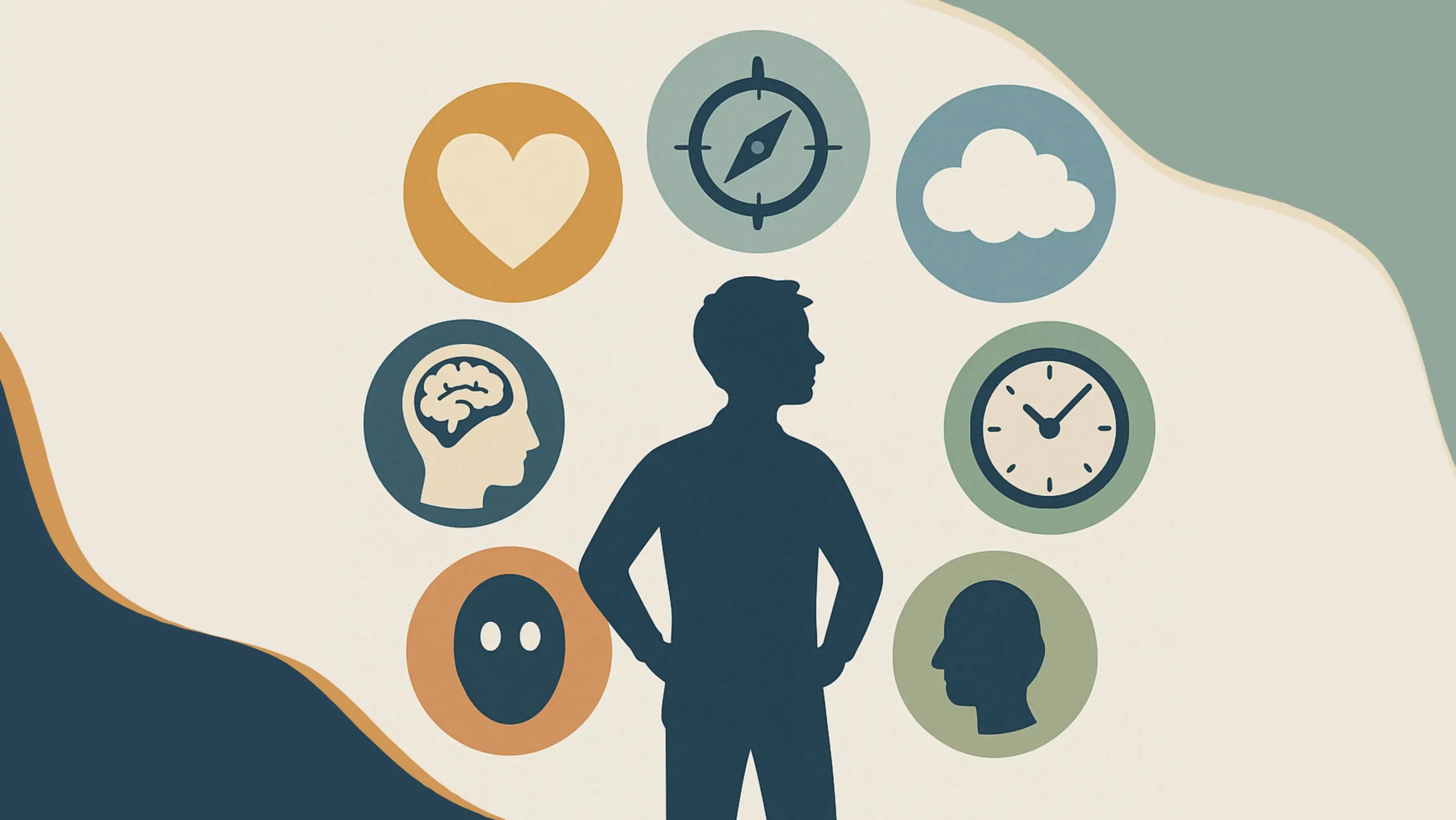Are you struggling with intrusive thoughts that just won’t go away? Perhaps you’ve tried challenging them, but it takes enormous effort and feels exhausting? Or maybe life just lacks a clear sense of direction, and your emotions tend to run the show? Let me introduce you to ACT — Acceptance and Commitment Therapy. I don’t think you will regret this acquaintance.
Where does ACT come from?
ACT is a psychological approach developed in the 1980s by Steven C. Hayes, (RFT). It has since grown into a wellresearched, evidence-based therapy that blends mindfulness, behavioural science, and values-based action. It is considered part of the ‘third wave’ of cognitive behavioural therapy (CBT), representing an evolution of traditional CBT. One of the most prominent voices in ACT is Dr Russ Harris, author of the widely popular book The Happiness Trap.
What is ACT all about?
At its heart, ACT is about building psychological flexibility — the ability to stay present, open, and engaged with life, even when things get difficult. Rather than avoiding pain, ACT encourages us to make space for it, and take committed action towards what really matters.
6 Key principles in ACT
(Hayes, Strosahl & Wilson, 2016)
ACT is based on six core processes that help us respond more effectively to our inner experiences:
- Acceptance — making space for unpleasant thoughts and feelings instead of fighting them.
- Cognitive defusion — learning to see thoughts as just thoughts, not absolute truths.
- Contact with the present moment — practising mindfulness and staying grounded in the here and now.
- Self-as-context — recognising you are not your thoughts or feelings, but the observer of your experiences.
- Values — identifying what truly matters to you.
- Committed action — taking steps aligned with your values, even when it’s uncomfortable.
Why woes ACT work?
ACT is supported by strong scientific evidence and is effective for a wide range of mental health difficulties, including depression, anxiety, addiction, PTSD, and chronic pain (Larmar, Wiatrowski & Lewis-Driver, 2014; A-Tjak et al. 2014). It offers a refreshing alternative to traditional symptom-control approaches, by helping people lead fuller and more meaningful lives.
What can you gain from ACT?
- Greater self-awareness and clarity of values
- Improved emotional resilience
- Better ability to unhook from difficult thoughts
- Mindful presence and a stronger sense of direction
- Relief…
Recommended Reads:
- The Happiness Trap — Russ Harris
- The Happiness Trap Pocketbook — Russ Harris (a user-friendly illustrated version)
- A Liberated Mind — Steven C. Hayes
- ACT With Love — Russ Harris
My favourite quotes from ACT experts:
“The feeling of love comes and goes on a whim; you can’t control it. But the action of love is something you can do, regardless of how you are feeling.” — Russ Harris
“The more we try to avoid the basic reality that all human life involves pain, the more we are likely to struggle with that pain when it arises, thereby creating even more suffering.” — Russ Harris
“Success in life means living by your values.” — Russ Harris
“Commitment” means that when you do (inevitably) stumble or get off track, you pick yourself up, find your bearings, and carry on in the direction you want to go.” — Russ Harris
“A = Accept your thoughts and feelings and be present. C = Connect with your values. T = Take effective action — Russ Harris
“What we need to learn to do is to look at thought, rather than from thought”. — Steven C. Hayes
“The truth about mental health is that the causes of all of the mental conditions you hear about are unknown, and the idea that “hidden diseases” lurk behind human suffering is an out-and-out failure.” — Steven C. Hayes
No, Russ Harris didn’t sponsor this article. But if he wanted to, I wouldn’t say no.
Warm wishes,
Dr Kasia
References:
A-Tjak, J. G. L., Davis, M. L., Morina, N., Powers, M. B., Smits, J. A. J., & Emmelkamp, P. M. G. (2014). A meta-analysis of the efficacy of acceptance and commitment therapy for clinically relevant mental and physical health problems. Psychotherapy and Psychosomatics, 84(1), 30–36. https://doi.org/10.1159/000365764
Harris, R. (2019). ACT made simple: An Easy-To-Read Primer on Acceptance and Commitment Therapy. New Harbinger Publications.
Harris, R. (2024). Pułapka szczęścia: Przestań walczyć, zacznij żyć. Gdańskie Wydawnictwo Psychologiczne.
Harris, R. (2008). The happiness trap: How to stop struggling and start living. Robinson, London.
Harris, R. (2012). The reality slap: How to survive and thrive when life hits hard. Robinson, London.
Hayes, S.C. (2019). A liberated mind: The Essential Guide to ACT. Vermilion.
Hayes, S. C., Strosahl, K., & Wilson, K. G. (2016). Acceptance and commitment therapy: The process and practice of Mindful Change. The Guilford Press.
Larmar, S., Wiatrowski, S., & Lewis-Driver, S. (2014). Acceptance & Commitment therapy: An overview of techniques and applications. Journal of Service Science and Management,07(03), 216–221. https://doi.org/10.4236/jssm.2014.73019

